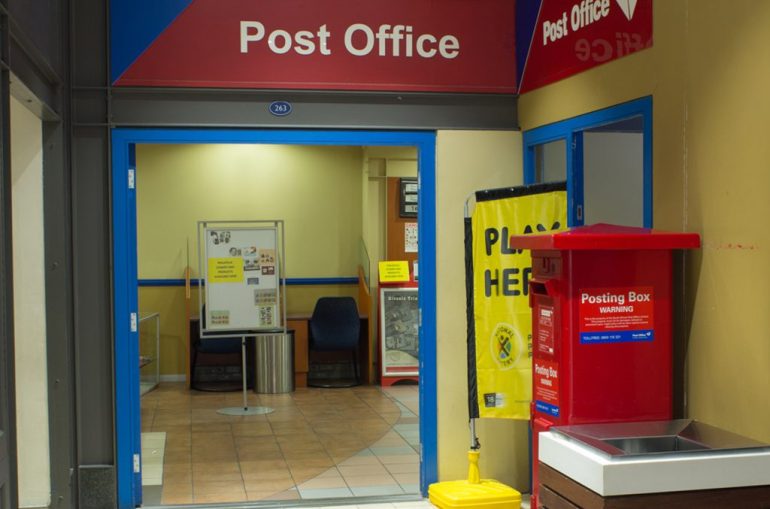Why some young women struggle to get the child support grant in South Africa
By: Andrew Gibbs, South African Medical Research Council

The expansion of the South African welfare system of social grants, in the form of a range of unconditional cash transfers, is one of the success stories of the African National Congress (ANC) government since it was first elected in 1994.
Recent research has suggested that social grants – which include the child support grant, a state pension grant and a disability grant – are critical for household survival in South Africa. One study estimated that a third of South Africans rely on grants for survival.
Social grants do more than enable the poorest households to survive. The benefits are broad. For instance, research has shown that children in households receiving the child support grant have better growth and nutrition levels. They are also less likely to engage in risky sexual behaviour.
In addition, social grants have been viewed as a way for the state to “recognise” people historically overlooked by the South African government. Beneficiaries view the receipt of social grants as a way of connecting with the state.
Yet there are problems with the system. While there has been a rapid expansion of access to social grants, not everyone who should receive grants does; for instance, only an estimated 65%-70% of eligible recipients receive the child support grant.
My colleagues and I wanted to understand young women’s experiences of accessing the child support grant, and what their challenges have been. Our research showed that a complex set of relationships between women seeking access to grants, and the systems and processes established to facilitate this, meant it was hard for women to access the grant.
From pillar to post
We interviewed 30 young women aged between 18 and 25, from two urban informal settlements in Durban, South Africa. All were eligible to receive the child support grant, but 10 were not, despite having tried. The other 20 described a range of experiences when it came to accessing the grant.
Almost all described the distance and the cost of travelling to the South African Social Security Agency offices to apply for the grant as a major barrier.
One respondent, Nonjabulo (not her real name), said:
There were problems because we didn’t have money to go to SASSA all the time. My mother is not working and getting transport money was a problem at times.
Another set of barriers many women reported was a lack of access to vital registration documents: their own identity books, their child’s birth certificate, or their child’s “road to health” card – a document provided by the Department of Health and recording a child’s health information, such as dates for vaccination and growth charts.
Many women described being passed from pillar to post as they tried to get replacement identity documents or a full unabridged birth certificate for their child. As they told their stories, it was evident that this was not a once-off experience. For many it was an ongoing struggle which had started in their mothers’ generation and then continued for them today.
Shamed and humiliated
Worryingly, many women described being treated poorly by the agency’s officials when they went to apply for the child social grant. A number reported that officials shamed and humiliated them, asking questions such as “Why did they get pregnant at such an age?” and “Where is your boyfriend?”
These questions not only caused great pain to the women: they were completely unnecessary for the application to receive a child support grant.
The young women felt forced to sit silently and let the officials continue to abuse them because they wanted to receive the child support grant and felt if they objected to the questions and talked back, it would put their grant application in jeopardy.
Families played a mixed role in supporting access to the child support grant for these women. Some relatives were supportive, for instance providing information on the application process or going with the woman to apply. This made the overall process much more bearable. Other women reported a lack of support, saying their boyfriends and relatives were unwilling to contribute to travel costs or otherwise support them.
Solutions
The research suggests that a number of important strategies need to be put in place to increase access to the child social grant among young women, who are often those who struggle most to access the grant. There needs to be support for women to receive all forms of vital registration documents. The processes to do this need to be simplified.
There also need to be strategies to reduce the distance applicants have to travel to the agency’s offices. This may include opening offices closer to where the poorest in South Africa live, or shifting existing offices to these areas.
![]() And the agency’s officials need to be trained about interacting with those applying for the child support grant. Treating women who have a right to access the grant in ways that continue to oppress and marginalise them is unacceptable. Such behaviour must be rooted out.
And the agency’s officials need to be trained about interacting with those applying for the child support grant. Treating women who have a right to access the grant in ways that continue to oppress and marginalise them is unacceptable. Such behaviour must be rooted out.
Andrew Gibbs, Senior specialist scientist: Gender and Health Research Unit, Medical Research Council, South African Medical Research Council
This article was originally published on The Conversation.
Written by: Natasha
Similar posts
MORE ARTICLES

In Pictures: Mzansi Celebs serve style and drama at Durban July 2025

Five killed in KZN crash allegedly caused by Polo driver

From Benin to the world: Kidjo makes history as first black African on Hollywood Walk of Fame

Drama, cheating and Surprise guest: RHOD reunion delivers shocking revelations

Why Waterfall Estate’s 99-year lease is practically forever
QUICK LINKS
UpComing Shows

Touch of Soul
With T Bose
Kaya 959 takes back Sundays with A Touch of Soul, the only show bringing you soul and RnB music that touches your mind, body and spirit. The Best T in the City, T-bose takes you back to a time when music was made to last. A Touch of Soul is the perfect wind-down to your weekend. Sundays 14h00 to 18h00.
close
The Jazz Standard
with Brenda Sisane
The Jazz Standard with Brenda Sisane. Sunday's 12:00-15:00.
close
Spade of Hearts
With Xola Dlwati
WITH XOLA DLWATI: SATURDAYS 12:00 -15:00 Spade of Hearts is a fuse of love and soulful sounds, pulling at your heartstrings. Tune in for songs that will take you down memory lane. It is the sound that once dominated your playlist. It airs Sundays 12:00 – 15:00.
close
The World Show
With Nicky B
The World Show is informative, expansive, and largely pan-African. This is a musical journey that bridges generations and genres, travelling across continents and timelines, with in-depth interviews and features. ‘The World Show’ is a four-hour global journey through sound – featuring the freshest tracks from home and afar.
close
959 Music Weekdays
Kaya 959 Hits
Real. Familiar. Memorable. Kaya 959 brings you the music you know and love from our playlist. Uninterrupted. Thursdays 20h00 to 21h00
closeConnect with Kaya 959
DownLoad Our Mobile App
© 2025 Kaya 959 | On The Street On The Air









